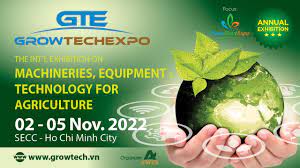
Retail price of urea nitrogen fertilizer (green) compared to organic nitrogen fertilizer derived from pig manure (red). Unit: euro/kg, period from June 2021 to May 2022. Graphics: DTN
Effective new types of technologies are the birth of new organic fertilizer producers such as Freetilizer (based in Povoa de varzim, Porto, Portugal) - a biotech start-up that can create value from pig manure, turning it into compost in less than 24 hours.
As a result, pig farmers are now able to produce their own fertilizers on the farm to use in their fields or sell to other farms. This solution simultaneously solves the environmental problem, eliminates waste management costs and creates a new revenue stream.
Freetilizer is a company that has developed technology that converts nutrients found in organic by-products into a fast, efficient, energy-efficient and environmentally friendly system. The process to create this high-potential organic fertilizer involves hydrolysis taking place in a controlled environment of pH, temperature and pressure, and then vacuum drying-effectively drying at low temperatures.
Environmentally speaking, this technology enables a “rezo waste” approach, by optimizing the use of by-products into compost that can replace organic matter and nutrients. soil, thereby reducing the carbon footprint of agricultural production.
The technology of the Freetilizer startup not only meets climate goals, but also ensures sustainable production and consumption patterns by optimizing the use of natural resources, avoiding waste on average 0.45 kgCO2e /kg of product produced during the production of agricultural products.
For long-term farmers, there are two types of fertilizers to choose from, organic fertilizers or chemical fertilizers, and each has its own advantages and disadvantages.
The benefits and drawbacks of organic and chemical fertilizers have been the subject of much heated debate and even conflict among growers. However, there are significant differences between organic and chemical fertilizers in terms of nutrient availability and long-term effects on soil, plant and environmental resources.
According to experts, chemical fertilizers are defined as any inorganic matter of synthetic origin that is added to the soil to support plant growth. Organic fertilizers are substances derived from the remnants or by-products of natural organisms that contain nutrients necessary for plant growth.
Chemical fertilizers can be rich in three types of macronutrients including, nitrogen, phosphorus and potassium and these are an instant source of nutrients for plants.

Freetilizer's production line of organic fertilizer from pig manure. Photo: Pipemasters
The standardized labeling of chemical fertilizers helps users to understand the ratio and source of the chemical. In contrast, organic fertilizers increase soil organic matter and improve soil structure, as well as water holding capacity, reducing erosion caused by wind storms and floods. It also provides slow-release nutrients. The special thing is that organic fertilizers are renewable, biodegradable, sustainable and environmentally friendly.
Generally, chemical fertilizers are more expensive by weight but cheaper in nutrients and less expensive to apply over large areas. Organic fertilizers, on the other hand, are cheaper, usually sold by the ton, but on a value-per-nutrient basis are more expensive.
All agreed with this view and accepted it until the crisis broke out (Russia-Ukraine conflict) and changed the production dynamics. As we have seen, nitrogen derived from synthetic urea, which was cheaper last year, has been dwarfed by organic nitrogen due to recent crisis events.
Another aspect to consider is that the price of organic nitrogen is very stable, unlike synthetic nitrogen which is often subject to large fluctuations from global transactions, transportation costs and speculation. Even if the scenario reverses and synthetic nitrogen prices fall, chemical fertilizers tend to be washed out, requiring repeated application and addition resulting in more expensive costs.
This reality is changing the game, because if organic fertilizers are nutritionally more complete and organic nitrogen prices are currently lower, farmers will get more nutrients for less. Better than many chemical fertilizers.
Source: Ha Duong - nongnghiepviet.vn






.png)